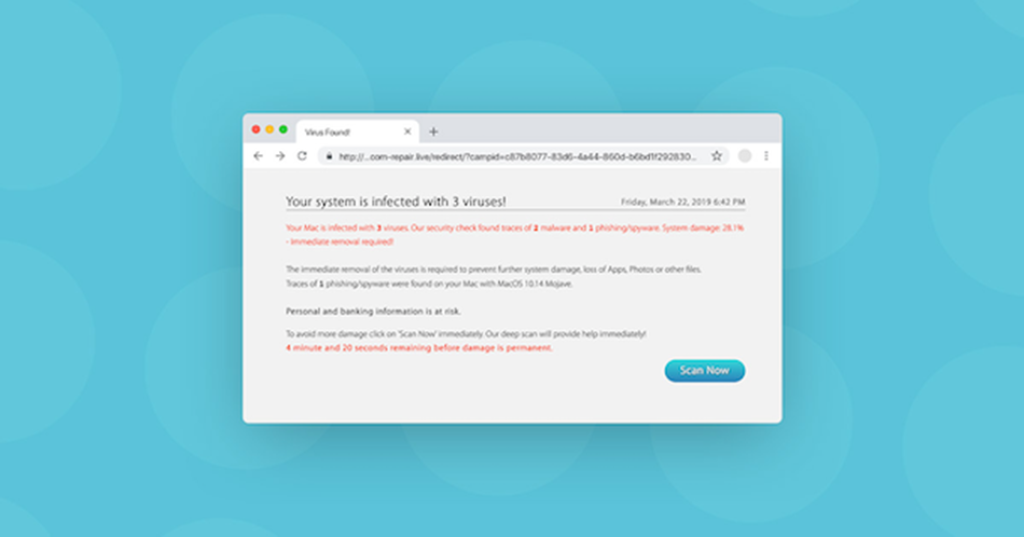Seeing fast-paced digital transformation, hackers always try to come up with new tricks to break into your computer systems. Therefore is always a need to note if there are signs your computer has a virus. In this article, we will explain how to check it.
There are myriads of malware and spyware in disguise that can infect your computers including Trojan horses, botnets, zero-day attacks, ransomware, adware, worms, viruses, and more. If your PC is bugged with any of these, it can heavily impact your privacy and security, especially if you’re a business owner.
To retain your system’s cybersecurity, it is essential to be able to spot the signs and symptoms of a virus infecting your computer. However, it is not as easy as it sounds. Sometimes, malware can be deeply rooted in your PC, making it harder to identify them.
Here we have elucidated 12 signs to help you recognize infected computer systems and what you can do to recover from and prevent such attacks:
What is a computer virus?
As the name suggests, a computer virus is highly infectious, as it considerably impacts your system’s speed, performance, and operational efficiency. Worse off, these viruses can spread across the OS via replication to cause more damage. If not controlled, viruses can damage computer programs, erase your drive data, delete folders, or completely crash the system.
Sometimes, hackers may use malware to steal your confidential data or hold it to ransom.
12 Signs Your Computer is Infected by a Virus
1. Bizarre pop-up windows
Unusual pop-up windows out of nowhere could be a red flag.
Many of us always see fake virus warning pop-ups on websites and applications. These windows claim that “your PC is at risk” or “your computer is infected with a virus”, pushing you to click on a link, visit a site, install software or call the given number.

One must understand that a website cannot really tell if your system is infected or not without a scan. Hence, these pop-ups are false and a trap planted for you to click on them. These spam messages intend to install spyware on your computer to break into your browser, steal data, and sniff passwords and other sensitive information sneakily.
Genuine antivirus software and defender programs will never really prompt such spam messages.
2. Unusual audio
Oftentimes, computer systems are configured in a way to send alarm signals when something’s wrong. These audio signals are generally accompanied by a warning window, but the malware may suppress this window. Hence, you may only hear the sounds. If these alarm beeps are too frequent and seem unusual, it may be a sign that your system has malware or virus.
3. Change in folders or files
Unexpectedly finding changes in folders or missing files or different content in your folders may be a sign that the system has a problem. Your computer does not make these changes on its own, hence either there’s a technical issue or malware that’s causing it.
Viruses tend to delete or change your files and data. As a result, it may create plenty of error messages. On the other hand, ransomware holds your data hostage and asks for a heavy ransom in return.
4. Poor speed
If the computer is painfully slow, even in tasks that are simple and easy to run, it may be due to an infection. If the hard drive light is illuminated most of the time and the internal fan runs at full speed (indicated by audible noise), this denotes that system’s resources are being infiltrated for illegitimate operations, rather than genuine programs at hand.
Beware of downloading unusual or unknown software from websites or ads, as this may be a trap to install spyware and viruses in your system.
In an extreme scenario, a virus may completely crash your computer and its programming, so you can no longer use it.
5. Locked out
If you are locked out of your own computer and are unable to sign in or sign out or access anything on your system, it is possible that a virus or malware has seized it.
6. Unknown programs launching on their own
Computer viruses or malware cause turmoil in your system operations. Random icons and toolbars emerging that you didn’t set up, or random programs starting on their own are just a few examples. All of these are a sign that a virus is infiltrating your computer.
7. Connecting to odd, unknown websites
One of the prominent signs of computer infection is when antivirus software notifies you of a program trying to connect to an unknown website. Computers do not connect to any websites on their own; hence this scenario is likely to be an infectious application trying to establish a connection.
8. Sensitive photos
Randomly seeing nude photographs pop up out of nowhere on legitimate websites that generally do not contain such images may be a sign of system infection. Continuously seeing pop-up ads for unknown websites is again a good sign of an infectious system.
9. Full storage on the hard drive
Did you notice your hard drive having no space all of a sudden? Viruses or worms replicate themselves across the OS and spread rapidly to infect the system. These worms inject their own copies into the files of your hard drive often not visible to the user. Such types of viruses or worms are referred to as disk bombs.
10. Unable to update or install an antivirus software
Some of the viruses are programmed in a way to preserve themselves. These types of viruses may turn off your antivirus tool or prevent an infected system from downloading or updating the antivirus software. To combat this situation, one can opt for antivirus disk software which you can insert into the CD drive and scan the system to clean viruses.
11. Spam messages sent on your behalf
A specific type of malware may make a post or send spam messages to people from your social media or email account. Often these messages are accompanied by an infectious link, so your contacts are fooled into clicking it. This is how the malware tries to keep on spreading the infection to different people. Once the malware takes over your account, you cannot really log into your account.
To prevent this, one must always make sure to use two-factor authentication for their accounts, create strong passwords and always log out once they’re done working.
12. Random processes
If you notice your computer lagging for no reason or acting bizarre, go to the Task Manager. This will show you a list of all running processes currently occupying system resources. If you notice unknown or odd processes running in the background, it is a solid sign of a computer virus.
Conclusion – signs your computer has a virus:
A computer virus or malware can affect your system, business, and peace of mind, exposing you to a bunch of cyber-attacks. The level of fraud heavily relies on the type of malware or virus and its scope of infection.
Regardless, users must always be well-informed of all the ways hackers could use to infect their computers. As a first step, it is crucial for everyone to use reliable antivirus and antispyware software and update them regularly.
Other good precautionary measures would be not opening unknown links or sites, not clicking on suspicious emails, and not visiting sites that don’t have an SSL certificate.
Top 11 Best Antivirus Software in 2022
Remove virus from laptop/computer for free?
2. Choose Protection from viruses and other threats > Scan options.
3. Choose Windows Defender Offline scan, and then choose Scan now.
4. consider buying professional anti-virus software to get real-time protection.
4. try to use Avira antivirus with the free version download here
How to prevent computer viruses?
2. don’t click on links without thinking or click on unknown links
2. stay away from free downloads sites that copyright infringement.
3. update consistently your windows
4. Avoid pirated software
How to minimize damage caused by computer viruses?

Bitport Review
Amrita is a cybersecurity technical writer with over eight years’ experience in the field. She is also a tech enthusiast and appreciated for her deep researching skills. When not writing, you can find her trying out new recipes and practicing yoga. Connect with her on LinkedIn or Twitter.








